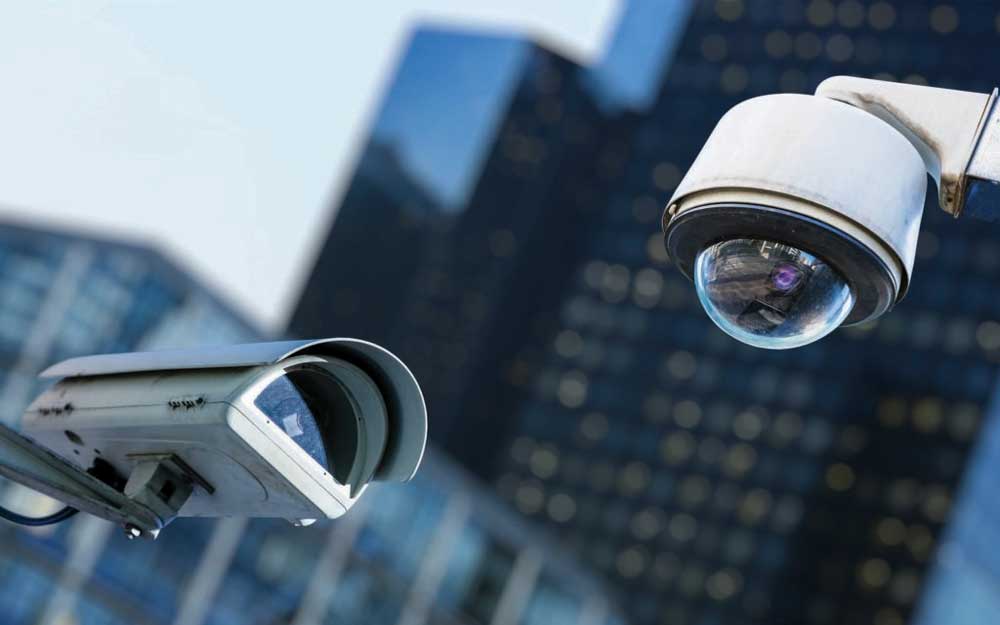Benefits of remote video monitoring for businesses
Are you considering a new video surveillance system for your business? Today, most surveillance systems come with one of two types of video cameras: IP or CCTV. Both cameras capture and transmit video footage, but they do so in different ways. IP cameras communicate across a network using internet protocol (hence the name IP camera), whereas CCTV cameras require coaxial cable connections. Since IP cameras allow you to monitor your business onsite and remotely easily, they are recommended security upgrades. This article explains everything you need to know about IP Security Camera Hosting.
What Is an IP Security Camera?
An IP camera is often called a network camera. It’s a digital camera that transmits images and video over a network. This network can be a wireless or local network, or it can transmit data across the Internet. Because these cameras can send and receive information easily across a network, business owners can monitor activity onsite, from home, or anywhere else. This always-on connectivity makes IP camera hosting popular in video surveillance systems.
Do IP Surveillance Cameras Need an IP Address?
IP surveillance cameras need an IP address to function properly. An IP (Internet Protocol) address allows the camera to connect to a network and communicate with other devices. Here’s why an IP address is essential for IP surveillance cameras:
-
Network Identification: The IP address uniquely identifies the camera on the network, enabling it to send and receive data.
-
Remote Access: With an IP address, users can access the camera remotely from any location with internet connectivity.
-
Data Transmission: The IP address facilitates video data transmission to recording devices, monitoring systems, or cloud storage.
-
Configuration and Management: Network administrators use the IP address to configure, manage, and troubleshoot the camera.
-
Integration: IP cameras can be integrated with other networked devices, such as sensors and alarms, to create a comprehensive security system.
Without an IP address, the camera cannot connect to the network, limiting its functionality and accessibility.
How Does an IP Camera Work?
Unlike CCTV cameras, which need coaxial cables, IP cameras can be easily accessed through a network connection. Their transmission capability is built right into the camera unit. Simply configure the camera to the Wi-Fi network or LAN (local area network), and it is ready to transmit the video footage. However, to observe the data remotely, you’ll need your camera’s dedicated IP host address. This configuration is simple to set up and allows you to monitor your business anywhere.
How To Store Your IP Camera Footage
The next question after “What is an IP security camera?” is what happens to the video feed after its transmission? You should hold on to it for a while to review it. To do so, you’ll want a secure place to store it – and you have a few options. You can store it directly on the camera, stream it to the cloud, or send the feed to another storage device (All of the above are also available). Customers of Pro-Vigil receive centralized storage of data from their surveillance cameras as part of the package. So if you choose Pro-Vigil for your IP camera hosting service, your video footage will automatically be backed up and accessible for the next two weeks (14 days is the standard, but additional days are available locally or in the cloud).
Why are IP Cameras More Beneficial than Analog Video Surveillance?
IP cameras offer several benefits over analog video surveillance systems, making them a preferred choice for many security applications:
-
Higher Resolution: IP cameras provide superior image quality with higher resolutions, enabling clearer and more detailed footage.
-
Scalability: IP camera systems are easier to scale, allowing for the addition of new cameras without significant infrastructure changes.
-
Remote Access: Users can access IP cameras remotely via the internet, enabling real-time monitoring and management from anywhere.
-
Advanced Features: IP cameras have advanced features such as motion detection, night vision, pan/tilt/zoom, and video analytics, which enhance surveillance capabilities.
-
Integration: IP cameras integrate seamlessly with other networked devices and systems, such as alarms, access control, and home automation systems.
-
Cost-Effectiveness: Over time, IP cameras can be more cost-effective due to lower installation costs (fewer cables required), easier maintenance, and the use of existing network infrastructure.
-
Digital Storage: IP cameras store footage digitally on network video recorders (NVRs) or cloud storage, offering easier access, search, and retrieval of video data.
-
Futureproofing: IP camera systems are more adaptable to new technologies and upgrades, ensuring long-term viability and compatibility with future innovations.
These advantages make IP cameras a more versatile and robust option for your modern video surveillance needs.
An Expanded Role for IP Camera Monitoring
As business security threats evolve, more organizations are turning to IP camera monitoring for real-time visibility and incident response. This approach allows businesses to continuously observe activity across multiple sites via remote access, enhancing both situational awareness and operational efficiency.
IP camera monitoring enables live video feeds to be transmitted directly to authorized users or a third-party monitoring center. When combined with virtual guarding services like those offered by Pro-Vigil, this ensures that suspicious activity is identified and addressed in real time—often before damage occurs.
Whether you manage a car dealership, construction site, retail location, or multi-site enterprise, hosted video surveillance and 24/7 IP monitoring services provide the proactive security coverage that traditional systems can’t match.
Signs You Might Need IP Video Surveillance
Now that we’ve defined IP cameras, it’s time to figure out if an IP security camera is right for your business. Here are some signs that you might need IP video surveillance:
-
You’re struggling with increased security concerns: Rising crime rates or security incidents in your area or within your property highlight the need for enhanced surveillance. Experiencing theft, vandalism, or other security breaches indicates a need for better surveillance.
-
You have high-value assets to protect: Protecting valuable personal or business-related assets necessitates robust monitoring systems.
-
You want to monitor a property remotely: If you need to monitor your property or business remotely, IP cameras provide real-time access via the internet.
-
Large or complex areas create security challenges: For monitoring large or complex properties, IP cameras offer better coverage and scalability compared to analog systems.
-
Regulatory compliance requirements: Certain industries require video surveillance to comply with legal or regulatory standards.
-
You need advanced camera features: The need for features like high-resolution video, motion detection, night vision, and video analytics indicates a move towards IP surveillance.
-
The business is growing: As your property or business grows, scalable surveillance solutions like IP cameras are essential to accommodate expansion without major infrastructure changes.
-
Insurance requirements: Some insurance policies may require or offer discounts for properties with video surveillance systems.
These signs can help determine if transitioning to or upgrading your existing surveillance to IP video surveillance is necessary.
What You’ll Need to Get Started with IP Camera Hosting
To connect a video surveillance system with IP camera hosting to your network, you’ll need the following:
-
IP hosting service
-
Dedicated IP address
-
Wireless router
-
Computer
-
A place to store your footage
Pro-Vigil provides the IP hosting service and storage for its customers allowing you to access your camera feed from anywhere without having to set it up yourself.
Why Choose IP Camera Hosting
IP camera surveillance is easy to install and manage, and it helps you monitor and protect your business 24 hours a day from internal or external theft and damage. Plus, you can access your surveillance system from anywhere to check on employees at work, observe your site after hours, or respond to threats. You can view the activity from your computer, smartphone, or tablet in real-time, or review securely stored video feeds from earlier.
Hosted Video Surveillance: A Smarter Way to Manage Risk
Hosted video surveillance, also known as IP video hosting, removes the need for costly onsite video storage or complex infrastructure. Instead, video is transmitted from your IP camera system to a secure cloud-based platform managed by your hosting provider.
With the right hosted surveillance services, you don’t need to worry about managing servers or recording hardware; everything is handled for you. This not only reduces setup and maintenance costs, but also ensures reliable uptime, easy footage access, and scalability as your needs grow.
Key features of hosted video surveillance include:
-
Secure offsite storage with redundancy
-
Centralized access to live and recorded video
-
Automatic software updates and threat detection
-
Encrypted transmission and user authentication controls
IP Camera Cloud Storage: Safe, Scalable, and Accessible
Cloud storage is one of the most convenient ways to manage surveillance footage. With IP camera cloud solutions, video is automatically uploaded to secure servers where it can be stored, indexed, and retrieved quickly. This approach eliminates the risks associated with physical DVRs or NVRs, such as theft, vandalism, or device failure.
Great IP camera cloud storage solutions are built for business continuity. Even if your location loses power or internet connectivity, footage is retained and available as soon as the system reconnects. Combined with proactive monitoring, this creates a comprehensive security framework.
The Pro-Vigil Advantage
Pro-Vigil offers high-quality surveillance systems with features like IP camera hosting and virtual security guards (so that there are eyes on your business even while you are sleeping). With state-of-the-art cameras, 24/7 surveillance, and deterrents to ward off potential threats, Pro-Vigil security systems stop most crimes before they even happen. Get peace of mind for your business. Contact Pro-Vigil to learn more about business security system options for your property today.
FAQ: IP Camera Hosting and Cloud Surveillance
IP camera hosting refers to a service where your surveillance footage is transmitted and stored on remote servers managed by a third-party provider. It eliminates the need for local storage and allows for easy access, monitoring, and maintenance.
- Your IP camera connects to the internet or LAN.
- Footage is securely transmitted to a cloud server.
- Authorized users access live or recorded footage via apps or web platforms.
- Remote access and monitoring
- Reduced hardware and maintenance costs
- Centralized, secure storage with backups
- Easy scalability and software updates
Yes, reputable providers use encryption, authentication protocols, and data redundancy to ensure footage remains safe from tampering or loss.
Absolutely. Remote access is a core benefit of IP camera monitoring. You can view live feeds or stored video from your smartphone, tablet, or computer.
You’ll need IP cameras, a network connection, and a hosting service like Pro-Vigil. Most systems don’t require advanced technical setup — your provider handles the rest.
Let me know if you'd like a second version without bolding, or if you need meta descriptions or social copy for this piece.







